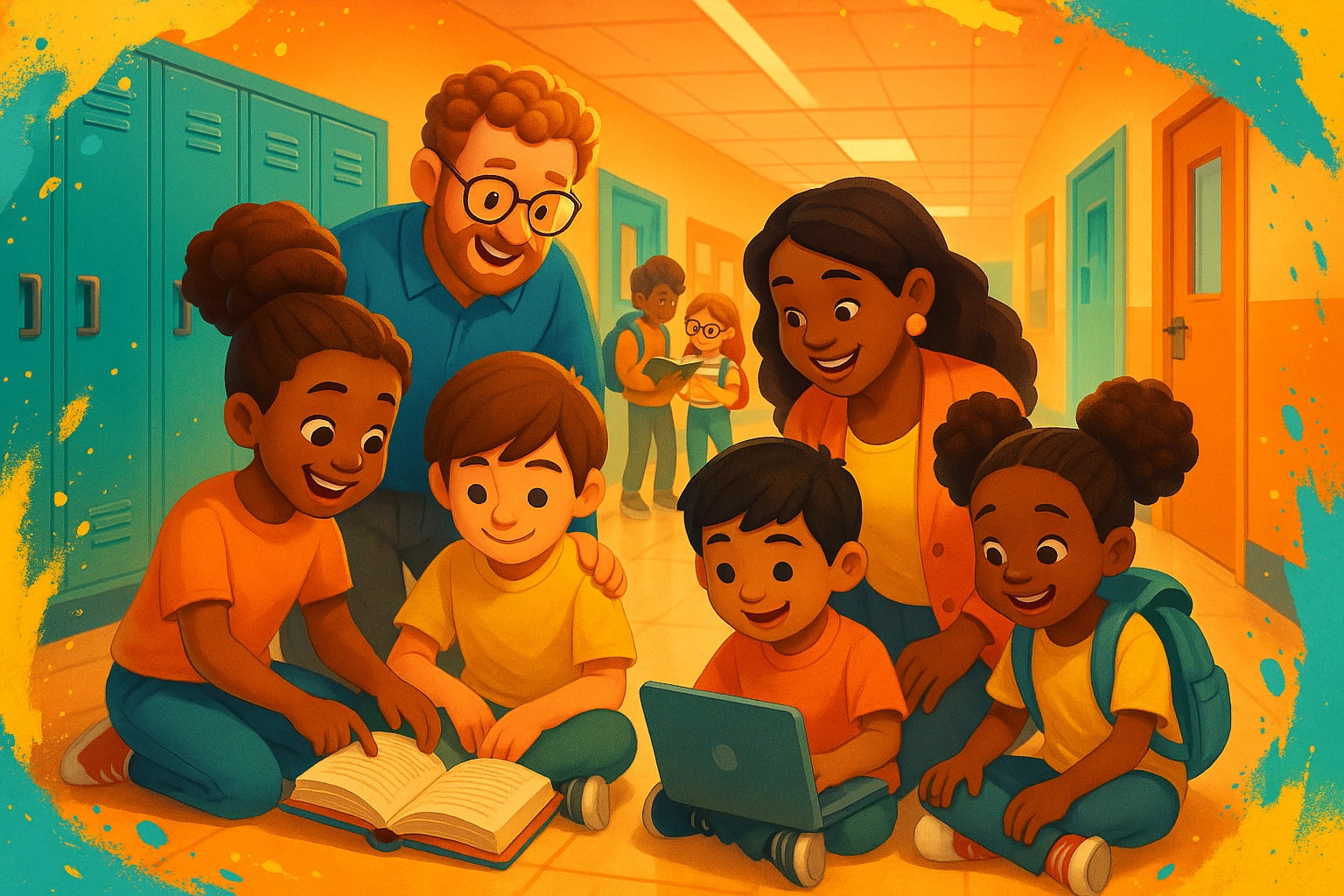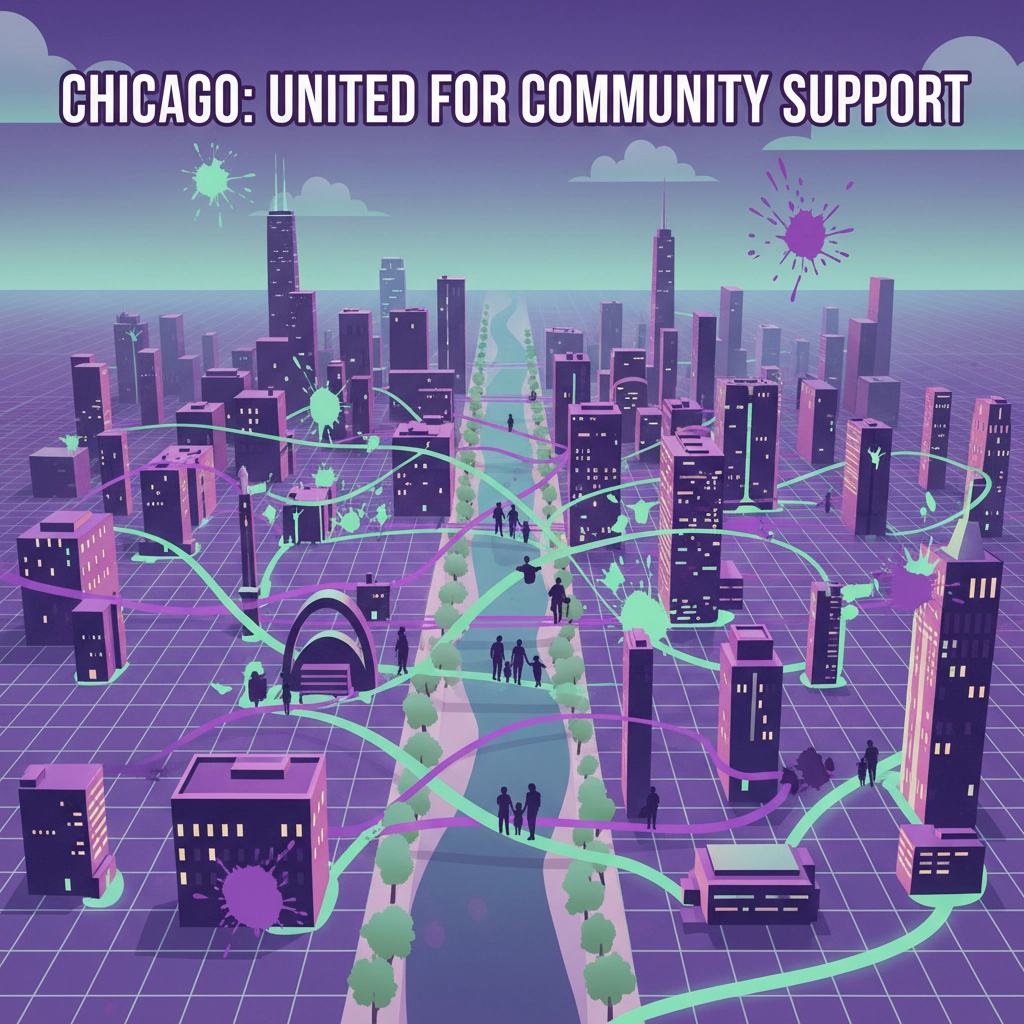Looking for Youth Development Support? 10 Things Every Chicago Family Should Know About Community Programs
- alpeshp1
- Oct 25, 2025
- 5 min read
When you're a Chicago parent trying to find the right support for your child, the options can feel overwhelming. With dozens of organizations, programs, and services available throughout the city, how do you know which ones actually work? The good news is that Chicago has built an incredible network of youth development programs designed specifically to help families like yours. Here are ten essential things you need to know to navigate these resources effectively.
1. School-Based Programs Reach Over 12,000 Students
You don't have to look far for help: many of the best youth development programs operate right inside Chicago schools. Youth Guidance alone serves more than 12,000 students across the city, with over 95% of participants identifying as African-American and Hispanic/Latino. These programs use proven approaches like social-emotional learning, group therapy, and individual counseling to help kids overcome academic obstacles and break cycles of violence.
The beauty of school-based programs is that they meet kids where they already are. Your child doesn't need to travel to another location or adjust to a completely new environment. Instead, trained counselors and mentors work within the familiar school setting to provide support during the school day.

2. A Coordinated Network Makes Navigation Easier
One of the biggest challenges families face is knowing where to start. That's where Thrive Chicago comes in: they coordinate with more than 75 youth-serving organizations through Chicago's My Brother's Keeper Action Team. This means instead of calling dozens of organizations individually, you can tap into a network that includes nearly 200 child and youth serving organizations.
This coordination brings together 600+ individuals working toward the same goal: supporting Chicago youth from "cradle-to-career." When organizations work together rather than in isolation, families get better service and fewer run-arounds.
3. Financial Support is More Accessible Than You Think
Don't let cost concerns keep you from seeking help. Since January 2020, Thrive leadership and partner organizations have generated nearly $1.1 million specifically for expanding programming reach. Many programs operate on sliding fee scales or offer services completely free of charge.
Even small community donations make a huge difference: a $100 contribution can fund dinner for 60 children during Study Buddies programming. This means the community is actively investing in making these services affordable and accessible for families at all income levels.
4. Crisis Intervention Services Respond Quickly
When your family is facing a crisis, you need immediate support, not a waiting list. Organizations like Youth Services offer crisis intervention, socialization groups, and counseling services designed to respond quickly when situations escalate. They operate under the principle that "every child should grow up happy, healthy and hopeful."
These services include 24/7 hotlines, emergency counseling sessions, and rapid response teams that can connect you with resources within hours, not weeks. Crisis intervention also includes parent education, recognizing that supporting the whole family often provides the most effective long-term outcomes.

5. Specialized Programs Serve Unique Populations
Chicago's youth development landscape recognizes that one size doesn't fit all. The Pride Youth Program specifically creates safe spaces for LGBTQIA+ youth to find support, acceptance, and community. This specialized programming addresses unique challenges that this population faces while connecting them to broader youth development resources.
Whether your child needs culturally specific programming, language support, or services tailored to particular challenges, Chicago's network includes organizations with deep expertise in serving diverse communities.
6. Teen Leadership Development Creates Real Impact
Programs like the YMCA of Metro Chicago's Teen Leaders Club flip the script on traditional youth programming. Instead of adults deciding what teens need, these programs empower young people to identify issues they care about and lead projects that create real change in their communities.
Teens choose projects based on their interests and passions while receiving adult advisor support. They meet regularly, develop leadership skills, and see tangible results from their efforts. This approach builds confidence, develops practical skills, and creates lasting community connections.
7. Workforce Development Programs Offer Real Job Experience
The Safe Spaces: My Chi, My Future program helps youth find local jobs while planning community events: combining income generation with skill development. Participants work 20 hours per week for one year while planning and hosting three neighborhood events.
This approach develops crucial workplace skills like time management, accountability, and project management while providing real income. For many Chicago youth, these programs offer their first professional work experience and the foundation for future career success.

8. Early Intervention Builds Long-Term Success
The Chicago Urban League's Project Ready Middle School program demonstrates the power of early intervention. Rather than waiting until high school to address college readiness, this program works with middle schoolers to build foundational skills early.
Students participate in STEAM activities (Science, Technology, Engineering, Arts, and Math), financial literacy education, career development, and social-emotional learning. By starting early, these programs help students develop confidence and skills before they face the additional pressures of high school.
9. Family-Centered Approaches Strengthen Entire Households
The most effective youth development programs recognize that supporting young people means supporting entire families. Family Focus works throughout Chicago and Northeastern Illinois to help families "build social capital and achieve upward economic mobility through high-quality innovative programs and services, grounded in anti-racism and social justice."
Children's Home & Aid has been assisting families for 138 years, working "at home, in the classroom and in the community." This comprehensive approach recognizes that lasting change happens when entire family systems are strengthened, not just individual young people.
10. Suburban Communities Have Dedicated Resources Too
Don't assume youth development support only exists in Chicago proper. Youth Crossroads serves Berwyn, Cicero, Lyons, Stickney, and Forest View, providing counseling services and youth development programming specifically tailored to suburban communities.
These programs understand that suburban families face unique challenges and may need different approaches than their urban counterparts. They offer the same quality of service while recognizing the specific needs of their communities.
The Bottom Line: Support is Available and Accessible
These programs exist because Chicago recognizes a crucial reality: one in two children in the city live in low-income situations, with many families forced to choose between paying bills and affording basic necessities. The extensive network of youth development programs provides multiple entry points for families seeking support.
Whether you need school-based counseling, crisis intervention, workforce development, or family support services, Chicago's community programs offer proven approaches delivered by experienced professionals. The key is knowing that these resources exist and understanding how to access them.
Don't wait until a crisis hits to explore these options. Many programs work most effectively as preventive measures, helping young people build resilience and skills before challenges become overwhelming.
Ready to connect with youth development support? Start by visiting our programs page to learn about True Believers Community Connections' approach to empowering Chicago youth. You can also explore our upcoming community events to meet other families and connect with local resources. Your family doesn't have to navigate these challenges alone: Chicago's community is here to support you every step of the way.



Comments